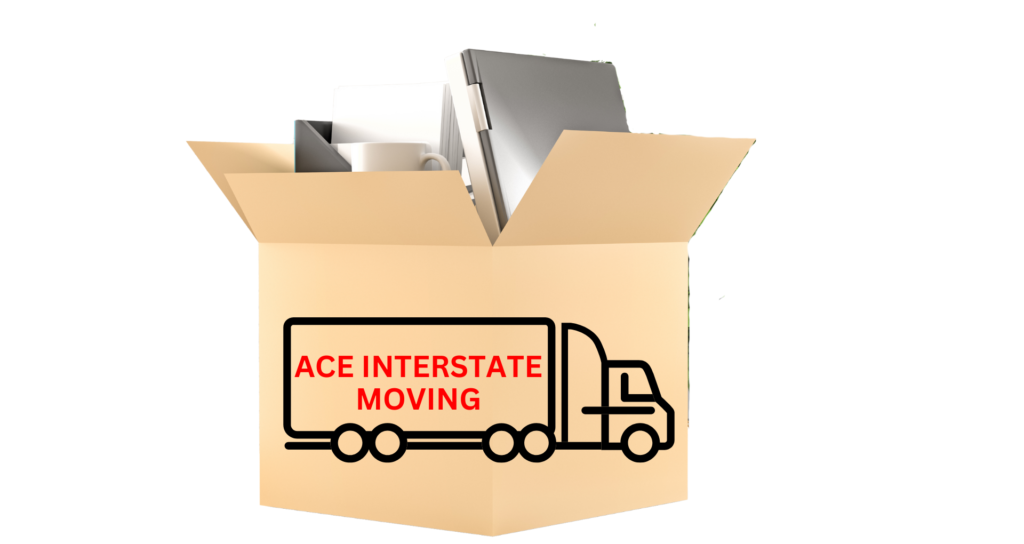Your Ultimate Guide to Relocating to the Old Dominion State
Relocating to a new state is always an exciting but challenging experience. Virginia, known as the “Old Dominion,” offers a mix of history, culture, and modern amenities, making it a popular choice for people looking to start fresh. Whether you’re moving for work, family, or simply a change of scenery, there are several factors to consider before making the move to Virginia. In this blog, we will discuss the pros and cons of living in Virginia, what to expect when moving, and how to make your transition as smooth as possible with the help of top-rated moving companies.

Virginia: A State of Rich History and Modern Comforts
Before diving into the details of moving to Virginia, it’s important to understand what makes this state unique. Virginia is steeped in American history, offering plenty of historical sites and monuments for history buffs. From the historic towns of Williamsburg and Charlottesville to the Civil War battlefields, Virginia is a history lover’s dream. But it’s not just the past that makes Virginia special—its economy, diverse culture, and stunning landscapes make it a desirable destination for all types of movers.
Virginia offers everything from bustling urban cities like Virginia Beach and Richmond to serene rural areas perfect for those seeking a quieter lifestyle. Whether you’re drawn to the vibrant job market, excellent education system, or the proximity to Washington, D.C., Virginia provides something for everyone.
Why People Move to Virginia
There are many reasons why Virginia is a top choice for relocation. Here are some of the key factors:
- Thriving Job Market
Virginia boasts a robust economy, with opportunities in sectors such as government, technology, education, healthcare, and finance. Cities like Arlington, Alexandria, and Richmond are major hubs for professionals, while tech startups and companies are increasingly setting up shop in Virginia’s tech corridor, which spans parts of Northern Virginia. - Proximity to Washington, D.C.
For many, Virginia’s close proximity to the nation’s capital is a huge draw. The state offers easy access to D.C. via major highways and public transportation, making it an ideal location for those working in the government or private sectors. Living in Virginia allows you to enjoy the benefits of living near a major metropolitan area without the high cost of living that comes with residing in Washington, D.C. - Top-Rated Education System
Virginia is known for its high-ranking public school systems and universities. Families with children will appreciate the quality of education in many of Virginia’s school districts. The University of Virginia, Virginia Tech, and George Mason University are just a few of the state’s prestigious institutions that attract students from across the country and beyond. - Beautiful Scenery and Outdoor Recreation
From the stunning Blue Ridge Mountains to the scenic coastline along the Atlantic Ocean, Virginia offers a variety of outdoor recreational opportunities. Hiking, biking, fishing, and boating are popular activities throughout the state. For those who enjoy the great outdoors, Virginia’s natural beauty is a major selling point. - Lower Cost of Living Compared to Neighboring States
Compared to states like Maryland and New Jersey, Virginia offers a more affordable cost of living, making it an attractive option for people looking to escape the high prices of living in nearby areas. Housing is more affordable in many parts of the state, and the overall cost of living remains reasonable for many families and individuals.
Challenges of Moving to Virginia
While Virginia offers an array of benefits, such as a robust job market, top-notch education, and beautiful landscapes, it’s important to be mindful of the potential challenges that come with relocating to the state. Understanding these challenges will help you make an informed decision and prepare for a smoother transition. Here’s an in-depth look at some key challenges of moving to Virginia:
1. Traffic and Commute Times
One of the most significant challenges of moving to Virginia, particularly in the Northern Virginia region near Washington, D.C., is the traffic congestion. Northern Virginia is one of the busiest commuter regions in the country, and traffic is a common source of frustration for residents. Major highways like Interstate 66, Interstate 95, and the George Washington Parkway are heavily congested during rush hours, with commuters often facing long and stressful drive times.
The heavy traffic can impact daily life in various ways, from increased commute times to limited access to certain areas due to traffic jams. Whether you’re heading into D.C. for work or simply running errands, be prepared for potential delays, particularly if you’re in the more densely populated areas like Arlington, Alexandria, and Fairfax.
While public transportation options like the Washington Metro and bus services are available, they can also be crowded, especially during peak hours. This means that commuting in Northern Virginia can often be both time-consuming and frustrating. If you’re considering a move to this area, it’s essential to plan accordingly, whether that means adjusting your working hours, using public transportation, or finding a home closer to your workplace.
2. High Housing Costs in Certain Areas
While Virginia is generally more affordable than neighboring states like Maryland and Washington, D.C., housing costs can be steep in certain areas, particularly in Northern Virginia and the metropolitan regions around Arlington, Alexandria, and Fairfax. These areas have become extremely popular due to their proximity to Washington, D.C., and are home to many professionals working in government and tech sectors.

As demand for housing increases, so do the prices. Rent and home prices in Northern Virginia can be significantly higher compared to other parts of the state. This can make it difficult for newcomers to find affordable housing in these high-demand areas, especially for young professionals or families looking to buy their first home.
For those looking for more affordable housing options, the suburbs or rural areas of Virginia might be a better choice. Cities like Richmond, Lynchburg, and Roanoke, or smaller towns in Central and Southwestern Virginia, offer a more reasonable cost of living while still providing a great quality of life. However, moving to these areas could mean longer commutes if you work in the D.C. metro area or other large cities.
3. Taxes
Virginia is known for having a relatively high state income tax, which can be a factor to consider when moving to the state. The state income tax ranges from 2% to 5.75%, depending on your income level, and while this may seem comparable to other states, it’s important to factor it into your overall financial planning. Those with higher incomes will find themselves paying more in state taxes, so it’s crucial to budget accordingly.
Additionally, Virginia’s property taxes can vary widely depending on where you live. Counties in Northern Virginia, such as Arlington and Fairfax, have higher property taxes due to their proximity to Washington, D.C. This means that homeowners in these areas may face significant property tax bills. It’s important to research the tax rates in the specific locality you’re moving to and factor this into your housing decision, as it can make a significant impact on your overall cost of living.
Sales tax in Virginia is also something to keep in mind. While it’s relatively moderate at 5.3% (with higher rates in certain regions), it’s always a good idea to consider the cumulative tax burden when planning a move to the state.
4. Weather Considerations
Virginia’s weather can be quite diverse, and while the state’s climate is one of its strengths for many people, it can also be a challenge for those who aren’t accustomed to drastic seasonal changes. In general, Virginia experiences four distinct seasons, with hot, humid summers and cold, snowy winters in some areas.
During the summer months, temperatures can soar into the 90s, especially in the central and southern regions of the state. The humidity in the summer can make the heat feel even more oppressive. While many people enjoy the warmer weather, those who are sensitive to heat or who have medical conditions may find it uncomfortable. Additionally, high humidity can lead to higher utility costs due to the need for air conditioning.
In the winter, some parts of Virginia, particularly the northern and western areas, can experience significant snowfall and freezing temperatures. While winters are milder compared to states further north, it’s important to be prepared for occasional snowstorms, especially in the mountainous regions. This may result in disruptions to daily life, from school and work closures to difficulty traveling on icy roads.
If you’re moving from a climate with more consistent temperatures or less severe winters, Virginia’s weather might take some getting used to. Be sure to invest in the proper clothing for both hot and cold weather, and prepare your home for both summer heat and winter snow.
What You Need to Know About Moving to Virginia
Relocating to Virginia, whether you’re moving from across the country or just a few states away, requires careful planning and organization. The process can seem overwhelming, but by breaking it down into manageable steps, you can ensure that your move goes smoothly and that you’re fully prepared for the transition to your new home. Here’s what you need to know about making a successful move to Virginia.
1. Plan Your Move Well in Advance
Planning ahead is key to a successful move, especially when relocating to a new state. It’s essential to give yourself at least 8 to 12 weeks before your moving date to prepare. This timeline will allow you to manage the many tasks that come with moving, such as organizing your belongings, coordinating logistics, and securing necessary documentation.
Start by decluttering your home. Moving is the perfect time to get rid of items you no longer need or use. Not only will this reduce the amount of stuff you have to pack, but it will also save you time and money when moving to your new home in Virginia.
Once you’ve downsized, make a checklist of all the things you need to do before your move, including transferring utilities, changing your address, and registering your vehicle in Virginia. If you have children, you’ll also need to research schools and complete any required enrollment paperwork. Don’t forget to schedule any necessary permits or parking arrangements if you live in an area that requires them for moving trucks.
2. Find a Top-Rated Moving Company
Choosing the right moving company is one of the most critical steps in ensuring a smooth and stress-free move to Virginia. As a moving companies listing platform, Ace Interstate Moving provides a curated list of top-rated moving companies in your area. Our platform offers access to trusted, experienced professionals who specialize in long-distance and interstate moves.

When selecting a moving company, it’s important to take several factors into account:
- Get Multiple Quotes: Request quotes from several moving companies to ensure you’re getting the best value for your money. Be sure to provide detailed information about your move to get accurate estimates.
- Check Customer Reviews and Testimonials: Reading reviews from past customers will give you a sense of the company’s reliability, customer service, and overall quality. Look for consistent positive feedback regarding punctuality, care with belongings, and professionalism.
- Insurance Options: Inquire about the company’s insurance policies to protect your belongings during the move. Depending on the company, you may be able to purchase additional coverage for peace of mind.
- Experience with Long-Distance Moves: Make sure the company you select has experience handling long-distance moves, as these can be more complex and require additional coordination. Companies with a proven track record of successful interstate relocations will be better equipped to handle the logistics of your move to Virginia.
By using Ace Interstate Moving’s platform, you can find the best moving companies in your area, ensuring that your transition to Virginia is handled professionally and with care.
3. Decide Where You Want to Live in Virginia
Virginia is a state of contrasts, offering a diverse range of living environments to suit various lifestyles. Whether you’re seeking the hustle and bustle of urban life or the tranquility of a more rural setting, Virginia has something to offer for everyone. Before you move, it’s important to research different areas to determine which one aligns best with your personal and professional needs. Factors such as cost of living, school systems, job opportunities, and proximity to family and friends should all influence your decision.
Northern Virginia is an ideal option for those seeking access to Washington, D.C., while still enjoying suburban living. Cities like Arlington and Alexandria provide proximity to the nation’s capital, making them highly attractive to professionals working in government, tech, or related industries. However, it’s important to note that Northern Virginia can come with higher housing costs, particularly in areas like Arlington and Alexandria. The area also faces heavy traffic congestion, especially during rush hours. Despite these challenges, Northern Virginia offers excellent schools, a wide range of job opportunities, and a vibrant cultural scene, making it a popular choice for many.
If you prefer a quieter, more relaxed environment, consider cities like Richmond or Charlottesville. These cities offer a more laid-back lifestyle while still providing plenty of amenities, including vibrant arts scenes, historic landmarks, and a range of dining and shopping options. Richmond, the state capital, is rich in history and is home to various museums, parks, and cultural institutions. Meanwhile, Charlottesville, known for being the home of the University of Virginia, offers a small-town feel with access to great educational opportunities and a strong local economy centered around education, healthcare, and agriculture.
For those drawn to the coast, Virginia Beach might be the perfect location. As the largest city in the state, Virginia Beach offers a mix of beach-town charm and urban amenities. With a thriving tourism industry and a range of recreational activities, including boating, fishing, and hiking, Virginia Beach is ideal for those who enjoy outdoor activities and a mild coastal climate. The city is also home to a robust military presence, with various bases and installations, offering job opportunities in defense and related fields. However, like other coastal regions, Virginia Beach experiences higher humidity in the summer, so be prepared for heat and moisture during the warmer months.
The Shenandoah Valley and Southwest Virginia offer a more rural, peaceful living experience. If you’re looking for a slower pace of life, affordable housing, and stunning natural landscapes, these areas might be perfect. The Shenandoah Valley, with its proximity to the Blue Ridge Mountains, is known for its breathtaking scenery, outdoor activities like hiking and fishing, and close-knit communities. Small towns like Staunton and Harrisonburg offer a combination of rural charm and cultural richness, with many locally owned shops, farmers’ markets, and annual festivals.
Before making a decision, it’s important to balance your personal preferences with your professional and financial goals. While urban areas like Northern Virginia and Virginia Beach offer robust job markets and modern amenities, they can also come with a higher cost of living. On the other hand, smaller towns and rural regions may offer more affordable housing but fewer job opportunities. Taking the time to weigh the pros and cons of each area will help ensure that you make an informed decision about where to call home in Virginia.
4. Prepare for the Weather
Virginia’s weather can vary widely depending on the region, and it’s essential to prepare accordingly. If you’re moving to the northern parts of Virginia, such as Fairfax or Loudoun counties, or even Shenandoah Valley, you’ll need to brace for cold, snowy winters. Snowstorms are common in the winter months, especially in the mountains, which can lead to travel disruptions and road closures. However, these regions also experience warm, humid summers with temperatures frequently reaching the 80s and 90s, so it’s essential to prepare for both extremes.
In coastal areas like Virginia Beach, the weather is milder overall but still subject to seasonal fluctuations. Winters are generally more temperate compared to the northern regions, but summers can still get quite hot and humid, often making air conditioning a necessity. Coastal areas also experience the occasional hurricane or tropical storm, so it’s crucial to stay informed about the weather and prepare your home for potential flooding or strong winds.
The central and southern parts of Virginia, such as Richmond and Roanoke, have more moderate weather overall, with hot summers and mild winters. While snow is less frequent here than in the northern regions, it can still occur, particularly in the higher elevations of the Appalachian Mountains. Packing for all seasons—winter coats, summer clothing, and everything in between—is essential to ensure you’re prepared for Virginia’s variable climate.
5. Update Your Address and Documents
Once you’ve secured your new home in Virginia, one of the first tasks is updating your address. You’ll need to notify the United States Postal Service (USPS) of your change of address to ensure that all your mail gets forwarded to your new location. You should also inform other important institutions such as banks, insurance companies, and utility providers. Failing to do so can result in missed bills, important documents, or delays in receiving vital information.

Additionally, you’ll need to update your driver’s license and vehicle registration with the Virginia Department of Motor Vehicles (DMV). New residents have 60 days to update their driver’s license after moving to Virginia. You will also need to register your vehicle within 30 days of establishing residency in the state, so make sure to factor this into your moving timeline. You may also need to complete the process of obtaining a Virginia title for your vehicle if it was registered in another state.
6. Settle in and Explore Virginia
After your move is complete, it’s time to explore your new home state. Virginia offers a wealth of things to do for newcomers, whether you’re interested in history, nature, or cultural experiences. For history enthusiasts, Virginia is rich in historical sites, from the colonial architecture in Williamsburg to the Civil War landmarks in Richmond and Appomattox. Virginia Beach offers a more laid-back vibe with its sandy beaches and bustling boardwalk, perfect for those who love the outdoors.
If you enjoy outdoor activities, Virginia offers some of the best hiking trails in the nation, especially in the Shenandoah National Park and the Blue Ridge Mountains. You can explore more than 200,000 acres of protected wilderness and enjoy scenic vistas, waterfalls, and wildlife. Additionally, Virginia’s numerous parks and lakes provide ample opportunities for fishing, boating, and camping.
Don’t forget to check out the local events, festivals, and community gatherings to get to know your neighbors and immerse yourself in your new community. Whether it’s a local farmers market, a craft beer festival, or a music event, these are great ways to connect with others and make your transition to Virginia even more enjoyable.
By settling in and actively participating in the local community, you’ll quickly start to feel at home in Virginia.
Conclusion: Is Moving to Virginia the Right Choice for You?
Virginia offers a high quality of life, a great job market, and beautiful landscapes, making it an appealing destination for many people. However, like any state, it comes with its own set of challenges, including traffic, housing costs, and taxes. Before moving, it’s important to do your research and carefully plan every aspect of the move to ensure that it’s the right decision for you and your family.
As you prepare for your relocation, consider using Ace Interstate Moving as your go-to platform for finding trusted moving companies in your area. We provide an extensive list of top-rated moving services that can assist with every aspect of your long-distance move. With the right planning, resources, and expert moving help, your transition to Virginia can be smooth and stress-free.
Are you ready to make the move to Virginia? Let Ace Interstate Moving connect you with the best moving companies in your area and help make your transition seamless. Happy moving!







